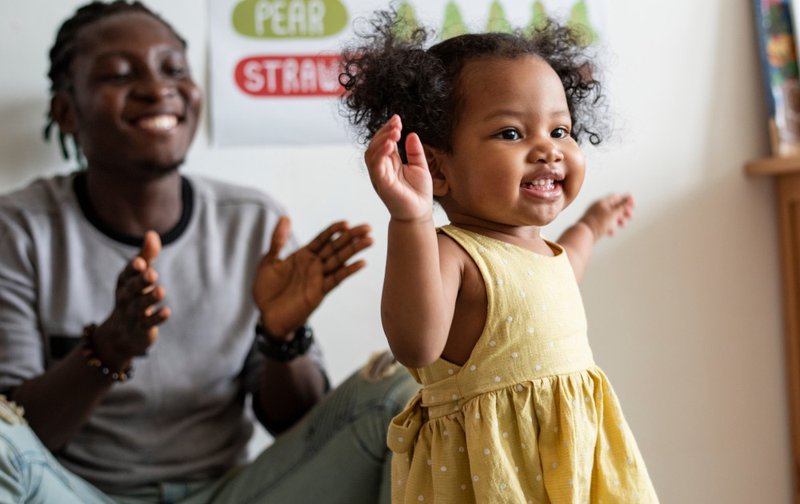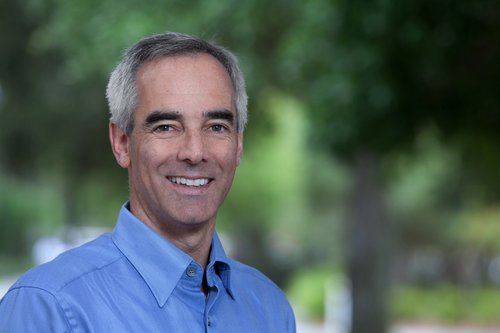Keeping a Promise for Early Childhood Development

Although there has been a significant increase over the last 10 years in entrepreneurial activity in US K-12 and higher education, the same cannot be said for early childhood innovation that targets our youngest learners.
Innovation for children ages birth to five continues to be under-resourced with fewer funders, accelerators, incubators, and entrepreneurial activity than seen in other age groups. Since 1992, based on 2017 Traxn data adjusted for years of learning in each age group, K-12 has received over 5x for-profit funding as compared to early childhood. Higher education has received nearly 7x.
Why It Matters
Why does this underfunding for early childhood matter? Simply put, our education system in the US is massively inequitable from the start. More than 50 percent of children from low-income communities are not fully ready for kindergarten. They often remain behind their peers throughout their school years and for their life. In fact, children who are not ready for kindergarten are 25 percent more likely to drop out of high school, 60 percent more likely to not attend college, and 70 percent more likely to be arrested for committing a violent crime. On the positive side, when given the opportunities to develop this critical foundation in their early years, children can enter school ready to learn, can establish early the skill sets for the future of work, and perhaps most importantly can develop the capacities to be better family members, friends, and neighbors, setting us all up for greater potential to live in a society defined by universal flourishing. Investing in the start of the life yields some of the greatest societal returns.
Investing in the start of the life yields some of the greatest societal returns.
One of the pillars of Omidyar Network’s work in education is addressing this need in early learning. We support promising entrepreneurial solutions that increase affordable access to quality solutions in early childhood across the three primary settings where young children are: at home, in childcare, or in preschool. And, with the recognition that research and science around early childhood have made remarkable progress over the past several decades, we seek to also help forge bridges between research and entrepreneurs with the goal of achieving impact at scale for children and families across socio-economic backgrounds.
Potential Solution: Building an Ecosystem
A major part of that effort is helping build the ecosystem necessary to support entrepreneurs in early childhood, especially bridging innovative solutions, research and public policy. In the process, we saw a major gap: there was no entity acting as the center of innovation for best practices in early childhood for scale and impact.
To address this important aspect of ecosystem building, we are thrilled to welcome a new organization, Promise Venture Studio, into our early childhood portfolio. Promise is a non-profit organization that seeks to build a thriving community of entrepreneurs, funders, researchers, experts, and policy makers across early childhood development that will spawn the growth of successful ventures, foster a virtuous cycle of innovation, and pave the way for the next generation of entrepreneurs. By building a diverse community of entrepreneurs who persistently form new ventures and scale established ones, Promise Venture Studio can inspire change across all facets of early childhood development so that all children, especially those facing the most adversity, can reach their full potential.
By building a diverse community of entrepreneurs who persistently form new ventures and scale established ones, Promise Venture Studio can inspire change across all facets of early childhood development.
Promise Venture Studio has partnered with organizations such as the Center on the Developing Child at Harvard University and the National Head Start Association to promote better systemic ties between research and practice. Promise will pursue further strategic partnerships and lead collaboration across the field, building on the prior foundation of the many organizations seeking to improve early childhood outcomes from different perspectives.

Promise was incubated at Omidyar Network in partnership with Matt Glickman. Matt was the founder and former CEO of BabyCenter, which was acquired by Johnson & Johnson and has scaled to reach millions of American parents and educate them on their young children’s development. As an entrepreneur-in-residence, Matt worked with Omidyar Network and with our close partner, HopeLab, on the concept for Promise. Michael Dougherty, who previously ran several organizations focused on early childhood, including Kindermusik, Gymboree Play Programs, and Pencils of Promise, also joined Matt Glickman and the Promise Venture Studio team as a venture partner. With now six members, Promise’s team is built with talent whose experience includes Google, McKinsey, New Schools Venture Fund, and Y-Combinator.
Promise Venture Studio: One Hub, Three Connected Focus Areas
With a mission to create a vibrant community that supports entrepreneurs and their ventures in early childhood development, Promise Venture Studio aims to catalyze system-wide change — and create sustainable impact for the most disadvantaged children (age 0–5) and their families in the US. They have three focus areas:
- Attracting more diverse and higher caliber talent entering — and committing to — early childhood development
- Supporting current and aspiring entrepreneurs, at any stage, to build successful ventures (non-profit, for-profit, hybrid) with sustainable social impact
- Connecting disparate stakeholders to facilitate cross-boundary learning and spur more effective collaboration
Promise will support a wide range of entrepreneurs throughout various stages of their journey. An aspiring innovator can join the studio as an entrepreneur-in-residence, while an academic researcher with a proven intervention can gain support to scale their work through a non-profit. An early childhood practitioner who has demonstrated a successful pilot and is seeking to build a for-profit organization can find resources at Promise, as will a successful entrepreneur who is seeking to ensure a product or service reaches low-income families in rural communities. Through a mixture of virtual workshops, in-person convenings and demos, and one-on-one support from their team, Promise meets entrepreneurs where they are.
And they have already started to develop a community through their collaborative work supporting entrepreneurs from the Early Childhood Innovation Network. The network is a cross-disciplinary community launched by OpenIDEO and Gary Community Investments as part of the OpenIDEO Early Childhood Innovation Prize. And, we are proud to partner with the Promise team and Sesame Workshop to co-host Early Futures, a gathering of more than 50 promising ventures and 200 cross-disciplinary stakeholders in early childhood.
We believe that, over time, Promise will showcase promising early childhood solutions for government and private sectors alike, and drive more funding, talent, and quality solutions to the sector, demonstrating that by working together, we can ensure all children are ready to learn, thrive, and fulfill their innate promise.
Read The Time Is Now: Investing Early in Our Children’s Future by Matt Glickman, Isabelle Hau, and Michael H. Levine on Early Futures. Follow and join the conversation at #EarlyFutures.
For more information and details on the Early Futures conference, read the press release here.